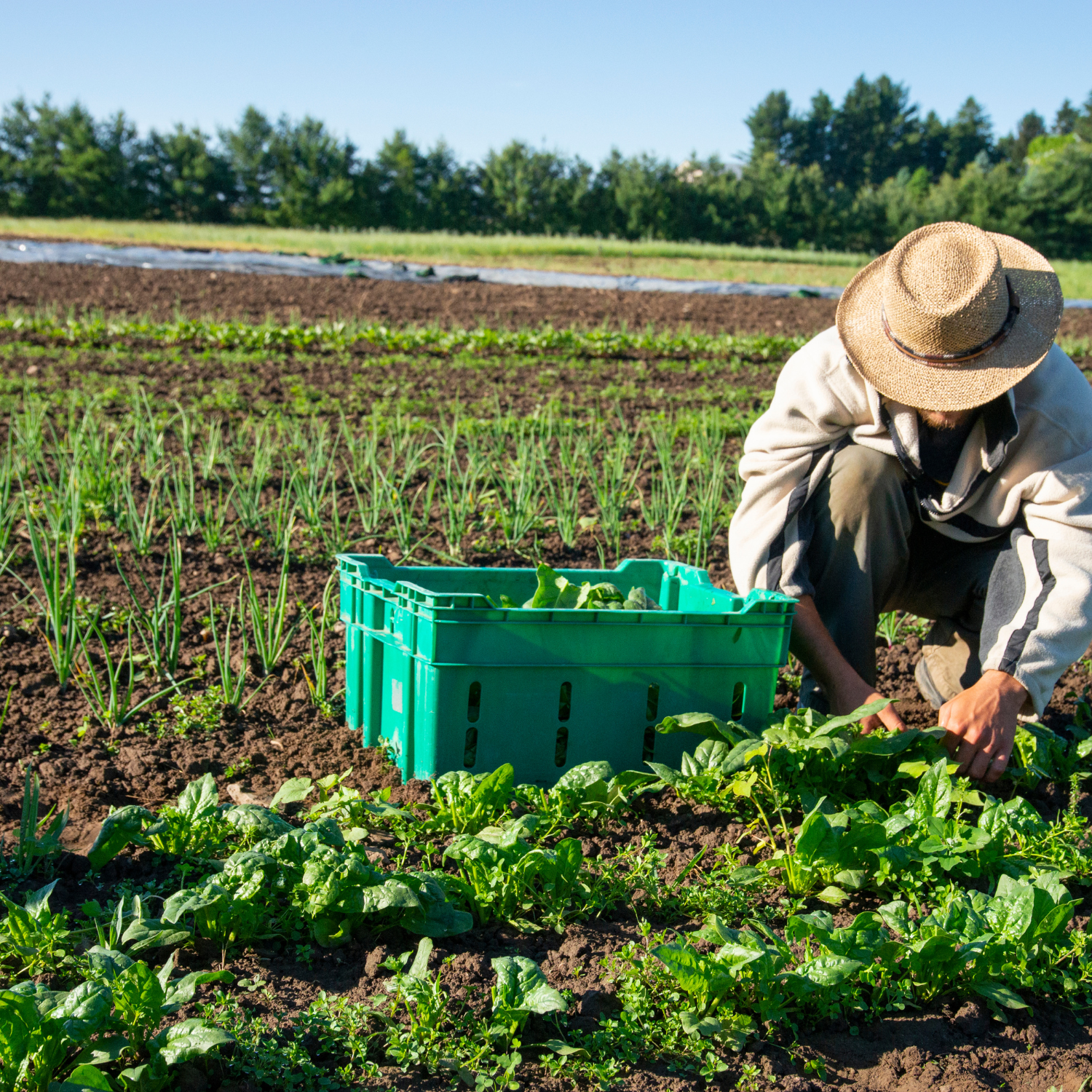Organic farming techniques are methods of farming that emphasises using herbal fertilisers and pest manage methods. It pursuits to construct and preserve soil health, promote biodiversity, and decrease using artificial chemicals.
What are Organic farming techniques?
Here are some of the common organic farming techniques:
- Crop rotation:
Planting one-of-a-kind crops in the equal discipline every year facilitates to enhance soil fertility and reduce pest strain.
- Cover cropping:
Planting cover vegetation among coins crops enables to suppress weeds, improve soil health, and decrease erosion.
- Composting:
Composting natural depend, together with manure, crop residues, and food scraps, creates a nutrient-wealthy fertiliser that may be used on crops.
- Biological pest manipulate:
Using herbal predators and parasites to govern pests can assist to reduce the want for artificial pesticides.
- Integrated pest management (IPM):
IPM is a holistic technique to pest manipulate that makes use of a aggregate of techniques, consisting of crop rotation, biological manage, and mechanical removal, to manage pests.
Organic farmers are also prohibited from the usage of certain artificial fertilisers, insecticides, and herbicides. These chemical substances can have poor affects on soil fitness, water best, and human health.
What are the benefits of Organic Farming techniques?
Organic farming techniques have the following benefits:
- Improved soil health:
Organic farming practices can assist to construct and maintain soil health, which could result in higher yields and extra nutritious crops.
- Reduced pollution:
Organic farming practices can assist to reduce soil erosion, water pollutants, and air pollution.
- Increased biodiversity:
Organic farms tend to have higher levels of biodiversity than traditional farms. This is due to the fact natural farming practices guide lots of useful insects, microorganisms, and other organisms.
- Improved animal welfare:
Organic farmers are required to provide their animals with get right of entry to to pasture and clean air. They are also prohibited from the usage of sure antibiotics and hormones.
What are disadvantages of Organic Farming techniques?
However, natural farming additionally has a few capability drawbacks, together with:
- Higher charges:
Organic food is often more highly-priced than traditional food. This is because organic farming practices may be greater hard work-intensive and require greater land.
- Lower yields:
Organic yields are regularly decrease than conventional yields. This is because natural farming practices do not rely on artificial fertilizers and pesticides to boost yields.
- Potential for food borne illness:
Organic food can nevertheless be contaminated with dangerous micro organism, much like conventional food. However, organic farmers are required to use true agricultural practices to minimise the hazard of food borne illness.
Overall, organic farming is a sustainable agricultural machine that has the capacity to advantage the surroundings, human fitness, and animal welfare. However, it’s miles important to be aware about the potential drawbacks of natural meals earlier than making a purchase decision.
Why are Pesticides avoided in organic farming techniques
Pesticides are not right for fruits and greens for some of motives. They may be poisonous to humans and animals. Pesticides are designed to kill pests, however they also can be dangerous to people and different animals if they are ingested or absorbed through the pores and skin. Even low degrees of exposure to insecticides will have terrible fitness consequences, including neurological troubles, reproductive problems, and cancer.
They can contaminate food and water. Pesticides can run off fields and into waterways, where they can contaminate consuming water and harm aquatic lifestyles. They also can remain on fruits and vegetables once they had been harvested. While the tiers of pesticide residues on produce are typically regulated via governments, there’s nonetheless a few challenge that even low stages of exposure can be harmful.
They can disrupt ecosystems. Pesticides can kill useful insects, consisting of bees and butterflies, that can disrupt ecosystems and feature negative impacts on meals manufacturing. They can also damage different flora and fauna, along with birds and fish.
In addition to those fashionable concerns, some insecticides have unique health risks associated with them. For instance, some pesticides were related to endocrine disruption, which can intervene with the normal functioning of hormones. Other pesticides have been linked to neurological problems, inclusive of Parkinson’s disorder and Alzheimer’s disease.
It is crucial to word that not all pesticides are created identical. Some pesticides are extra poisonous than others, and some are more likely to go away residues on food. It is likewise essential to do not forget how insecticides are used. Pesticides which can be carried out efficaciously and in keeping with label commands are less in all likelihood to pose a danger to human health and the surroundings.
Read more about:
nutritious vegetables to boost your health!
However, even if used correctly, insecticides can nonetheless have negative influences. For this cause, it is commonly high-quality to pick natural end result and veggies every time viable. Organic produce is grown with out the usage of artificial insecticides, herbicides, and fertilizers.
If you are unable to pick organic produce, there are a number of of things you may do to lessen your publicity to insecticides on conventional produce:
- Wash all culmination and vegetables very well below jogging water earlier than consuming or cooking them.
- Peel culmination and greens each time feasible.
- Avoid buying produce this is bruised or damaged.
- Choose produce that is in season and domestically grown.
FAQs
1. What are pesticides?
Pesticides are chemicals that are used to avoid the pest attacks on the crops. Crops are vulnerable to pests, a pest attack can cause destruction of the entire yield. Thus, pesticides are specialised chemicals that are used to spray on the crops to avoid or kill pests.
2. Why are pesticides not good for plants?
Pesticides are designed to kill pests, yet they can be dangerous to the mankind and the ecosystem. If they are ingested or absorbed through the pores and skin they can cause serious health issues such as neurological troubles, reproductive problems, and cancer.
They can contaminate food and water. Pesticides can run off fields and into waterways, where they can contaminate consuming water and harm aquatic lifestyles. They also can remain on fruits and vegetables once they had been harvested
3. What is organic farming?
Organic farming techniques are methods of farming that emphasises using herbal fertilisers and pest manage methods. It pursuits to construct and preserve soil health, promote biodiversity, and decrease using artificial chemicals.
4. What are benefits of organic farming?
- Improved soil health
- Reduced pollution
- Increased biodiversity
- Improved animal welfare
5. What are disadvantages of organic farming?
- Higher charges
- Lower yields
- Potential for food borne illness



